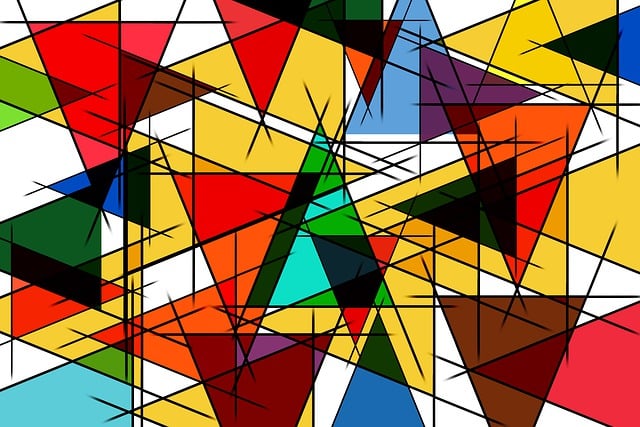
“The Fraud Triangle”: Threat-Assessment Analysis for Charitable Nonprofits
06.25.2025 | Linda J. Rosenthal, JD

In Patient-Advocacy Nonprofits’ Dark Ties to Industry, (May 26, 2017), we examined some practices in the nonprofit sector that need a huge dose of sunlight on them to expose apparent conflicts of interest. Specifically, we referred to the often too-cozy relationships between patient-advocacy organizations and drug companies or other healthcare businesses that fund them.
This post tells the tale of Patrick Soon-Shiang, M.D., a billionaire doctor and entrepreneur. He can’t seem to step away from the spotlight, attracting attention to unsavory charitable-giving practices for all the world to see.
The title of a recent article about Dr. Soon-Shiong is: How the world’s richest doctor gave away millions — then steered the cash back to his company. (March 6, 2017) Rebecca Robbins, STAT. This gives a strong clue about the heap of trouble facing him.
A few years ago, Fortune ran a lengthy, highly revealing profile of this colorful character. See Who’s the Richest Guy in L.A? (November 21, 2013) David Whitford, Fortune.
It’s a fascinating story of this now-60-something physician/entrepreneur who began life as the ninth of 11 children of Chinese parents living in South Africa. He moved to Los Angeles over 30 years ago, armed with a medical degree and “a plan to save the world.” Dr. Soon-Shiong was “a pioneering transplant surgeon at UCLA in the 1980s, a widely published researcher, and the inventor of the cancer drug Abraxane.”
“But there was always another side to Soon-Shiong,” recalls a friend. “You just meet some guys in your life who know how to make money….Patrick is one of those guys.”
In 1998, the enterprising physician-entrepreneur “cobbled together loans to buy a struggling generic drugmaker. He turned the company around, used the profits to develop Abraxane, preserved his equity, and cashed out a decade later with two spectacular deals that catapulted him into the upper reaches of the American plutocracy.”
He is brilliant and driven. He believes “… we are on the cusp of a transformative moment in medicine ….” He is “… convinced that by leveraging all the cool stuff that’s happening right now in mobile technology, supercomputing, machine vision, artificial intelligence, cloud storage, mega-high-speed data transmission, genomics, and proteomics, medicine will emerge at long last from the Dark Ages.” That is to say, he “… sees paradigm-shifting implications for how researchers develop new therapies and doctors diagnose and treat even the most terrifying diseases — especially the terrifying ones….”
Patrick Soon-Shiang is very much a “self-promoter.” Recently, he met twice with Donald Trump, actively seeking the job of the “nation’s health czar.” He and his wife, a former actress, are now “among L.A.’s newest A-list philanthropists.”
Dr. Soon-Shiong is in the news right now because of some highly irregular “charitable” transactions revealed by “[a] bombshell investigative report.” That it took much digging at all seems doubtful because the man is notoriously public about everything he does.
“This looks like another ugly example of self-dealing philanthropy in the world of medicine—but this one comes with some unusual bells and whistles,” according to the editor of The Nonprofit Quarterly.
Reportedly, Dr. Soon-Shiong “…orchestrated a charitable donation in a way that would ensure almost all of the money would be funneled back into his own companies.” More specifically, he made a $12-million donation to the University of Utah that was “ostensibly meant to spur genetic research for a number of diseases.”
But “…[h]idden in the wording of the University of Utah grant agreement” was the “requirement that had $10 million of that funneled back into NantHealth,” one of the multi-billionaire’s own companies.
There were additional oddities: “The money came through two private foundations controlled by him,” as well as via his NantHealth Foundation, “… a type of public charity classified as a medical research organization.” All NantHealth Foundation board members are “designated by Patrick Soon-Shiong, who is neither a member or a stockholder.” These appointee-directors take office upon designation, “… serve at [his] pleasure,” and “… hold office until a successor has been designated and qualified.”
The transaction landed him a tax deduction, along with the so-called “philanthropic halo.” He also “gained a stream of steady cash, and access to the university’s patient data, which he needed to build a new commercial product meant to assess patients’ risk of rare and inherited diseases. *** But, that’s not the end of it. Through its relationship with the university, the company then inflated the number of test orders it reported to investors late last year by more than 50 percent.”
NantHealth, the Soon-Shiong company that markets the product called GPS Cancer, appears to have misled investors in reporting its third-quarter earnings last November. The company said that during the quarter it had received 524 orders for the GPS Cancer test, which analyzes tumor genetics and recommends treatments for patients. One-third of those orders came from the University of Utah deal, a company representative told investors on the earnings call.
University of Utah representatives, though, told the media that “the work they ordered from NantHealth had nothing to do with GPS Cancer. They paid for straightforward genetic sequencing, meant strictly for preclinical research,” and “could not understand why NantHealth would count the work as orders for GPS Cancer.”
The author of the investigative report about these dealings asked four tax experts “to review the contracts.” They agreed that this Utah deal “did not pass a sniff test, as it appeared to violate rules concerning charity and self-dealing. To emphasize this point, one of the experts – Marcus Owens, who formerly headed up the IRS’s Exempt Organizations Division – said “the University of Utah was essentially laundering the money for Soon-Shiong.”
And in an homage to understatement, another of the experts remarked that “[w]e pretty clearly have an optics problem.”
Remarkably, this is not Dr. Soon-Shiong’s first trip around this particular block; that is, charity shenanigans.
Some six months earlier than the Utah deal, Soon-Shiong’s public charity “announced it would donate $20 million to children’s hospitals in California and Pennsylvania for a research study on sequencing brain tumor samples. In the same press release …, it [was] also announced that Soon-Shiong’s company NantHealth would be contracted under the grant. A later press release revealed that a portion of the grant would also go to buy NantHealth’s GPS Cancer tests.”
Optics, indeed.
– Linda J. Rosenthal, J.D., FPLG Information & Research Director
